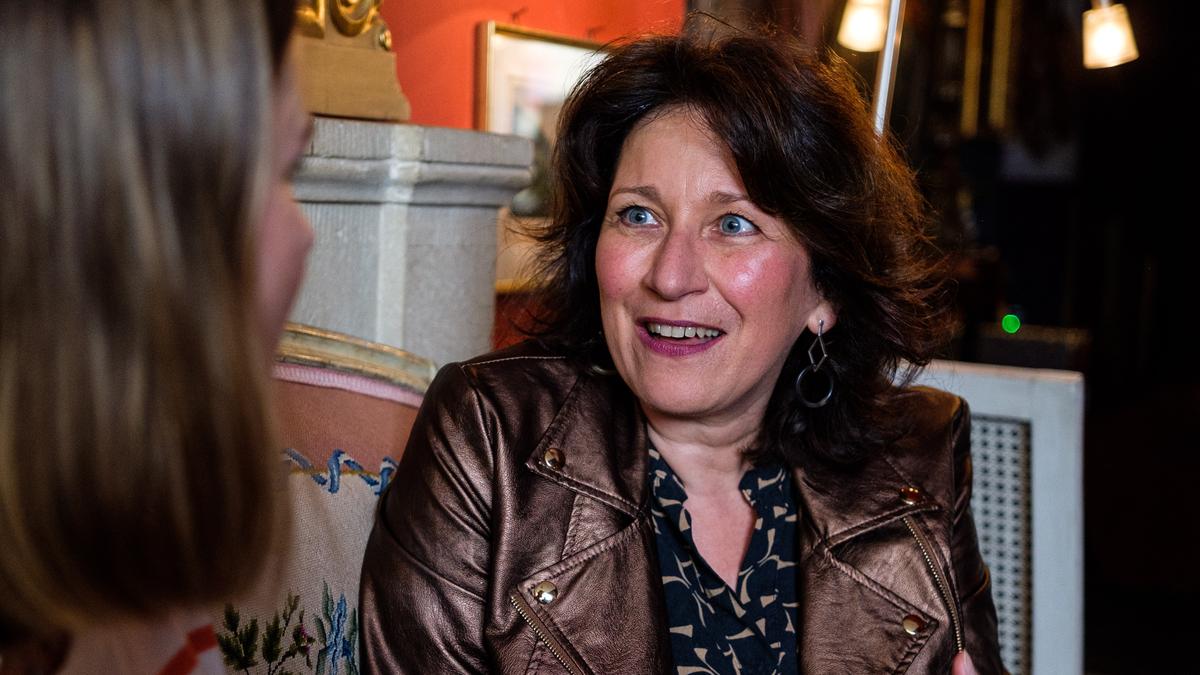Luxembourg writers who publish in English weigh in on what makes the local anglophone literary community so vibrant and welcoming, and why, above all, it is characterised by multilingualism, reflecting the country’s DNA.
An ever-expanding anglophone writing community
From writers’ groups to publishers and official showcases, the past few years have seen an increasing number of initiatives encouraging literary creation in the English language in Luxembourg.
“There is now a very solid Anglophone writing community here, which wasn’t the case when I arrived in 2000,” says English-Luxembourgish writer James Leader, winner of the 2016 edition of the Luxembourgish National Prize for Literature, which is open to English language entries.
The Black Fountain Press, Luxembourg’s first publisher in English, was founded in 2017 and has since established itself as a solid part of the local literary scene. Most recently, their success has been sealed by their first-ever Servais Prize, which was awarded to Anne-Marie Reuter, founder of Black Fountain, for her novel M for Amnesia.
“Being awarded the Servais Prize is important on so many levels,” Reuter says, adding, “for me personally, it’s a wonderful acknowledgement of my writing.” Reuter is also overjoyed to have a prize-winning publication in Black Fountain’s catalogue, and adds, “it’s the first time that the prize goes to an English-language publication, which shows that English has firmly established itself as one of Luxembourg’s literary languages.”
James Leader © Photo credit: Sandra Packard
Many writers praise the Anglophone writers’ group Writers Who Talk ASBL, a group open to all which meets regularly to workshop texts, organise readings, showcases, and many other events. Over the years, they have acquired many active members and are a great way to meet other writers. “I very much enjoy taking part in the English-speaking author community here, which I consider impressive given the size of the country,” Zoé Perrenoud, a bilingual writer of Swiss and British origin, says. “I feel like I am always meeting new people who enjoy writing in English.”
Kulturfabrik organises literary events called Work in Progress (WIP), where local writers perform readings from unpublished texts, and regularly include anglophone writers. American John-Paul Gomez, winner of the 2022 Luxembourgish National Prize for Literature, also praises the fact that the National Literature Centre has been very inclusive of anglophone writers. He concludes that “there is a solid anglophone writing community in Luxembourg, one that is thriving not only due to the authors themselves but also because of the opportunities we are given here.”
This growing presence of English in publishing and Luxembourgish culture makes for a more welcoming country. “It opens up Luxembourg to many people who do not have a French-German language background. I meet many Indians or South Americans or East Europeans who can have a voice now in Luxembourg, which would not have been the case before the establishment of English,” Leader commends. Gomez agrees, saying “it demonstrates Luxembourg’s standing as a country that’s open to the world.”
English: A rich language for creative expression
There appears to be a consensus among writers, some of whom are native speakers and some with a different mother tongue, that English, the product of various historical linguistic influences, is particularly rich in the written form, allowing one the possibility to find just the right word.
Cecile Somers-Lee, raised in Luxembourg but originally from the Netherlands, says it is this mélange which attracts her to the language. “Although I could and may still write in Dutch, I prefer English, one of the reasons being it has the largest vocabulary of all major languages. The reason why English is so brilliant is its mix of Anglo-Saxon, Germanic and Latinate words, which almost always gives you more than one choice.” In that way, she likens it to Luxembourgish, which often offers a choice between a more Germanophone or Francophone expression.
Swiss fantasy author Zoe Perrenoud (right) © Photo credit: Alain Piron
“When I started writing full novels, I decided to write them in English partly because I feel it lends itself better to writing fantasy, and partly to connect with a wider audience,” Perrenoud explains. “I have never liked the idea of limiting the reach of my stories to a particular country or group of countries, preferring instead the freedom of self-publishing so that I might find readers regardless of where they, or I, live.”
Opening one’s writing to the world seems to be another common theme in choosing English. Percy Lallemang, a Luxembourgish author, says that beyond the vocabulary aspect, “there’s also a large international community or readership which you can reach by writing in English, it’s the international language. Using English comes naturally to me, and even though I started writing in French when I was a teenager, I soon drifted away from it.” The writer considers English his second, first language.
Luxembourg as multilingual inspiration
While English holds an important place in the lives of these writers, it is almost always alongside other languages, and all believe that each language has its place in Luxembourg.
Somers-Lee says it best: “I don’t think our other languages risk being drowned out by English; there’s linguistic room for everyone. Linguistic purism is passé. Mix and match always: words, worlds, origins.” While English is her favourite language, she enjoys combining it with others, and her dream is to one day “write a book in three languages, sans glossary or explanations,” she says.
“In our small country, we should really be talking about ‘the writing community’, meaning a multilingual Luxembourgish community where code switching between languages is a normality for everyone,” Reuter says. “Luxembourg’s literature has always been in French, German and Luxembourgish. There’s no reason why writers in English can’t be seen as Luxembourgish writers.”
